Ivermectin Protocols for Cancer: AI Analyzes Pancreatic, Colon & GBM Cancers - Dr Justus Hope
We are constantly revising as we add additional information. Our goal is to refine these two protocols continuously and apply them to key cancers as we learn more through our ongoing joint research. We are developing cancer-specific protocols and previewing them to our readers.
With that said, Ivermectin is becoming the foundational repurposed drug in many of our developing cancer-specific protocols.
While it may rank slightly lower down the list in specific AI searches, its broad range against multiple cancer growth targets makes it a vital agent in almost every cancer. In some, such as brain cancers, Ivermectin’s lack of crossing the blood brain barrier might - at first glance - seem to be an issue.
- However, despite this “minor” problem, I have a bombshell to release later on Glioblastoma and Ivermectin, and IVM can and does still have massive activity against this monster tumor.
Ivermectin is the most versatile of the anti-metastatic and anti-CSC cancer agents with Curcumin being a close second.
As I shall discuss more later, Ivermectin attacks metastases through multiple non-CSC mechanisms. For example, it is also active in immune checkpoints and cancer metabolism.
More than 400 studies and counting have been published on Ivermectin + Cancer, and these are rapidly growing as more is discovered.
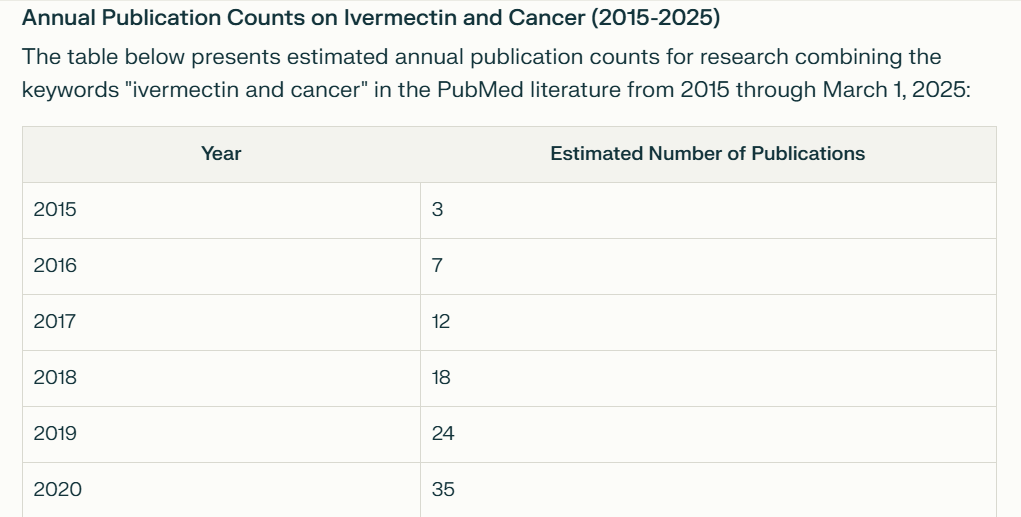

Ivermectin is becoming and will continue to be a foundational repurposed drug against cancer. But do not expect Big Pharma to admit this anytime soon, as Ivermectin can only subtract profits from a trillion-dollar industry. This is not a political statement, but an unfortunate economic fact of life.
I am more convinced than ever they could have been spared with an aggressive Ivermectin-based repurposed drug protocol. And AI confirms this below:
#1. Pancreatic Cancer: Cancer-Specific Cocktail
Pancreatic cancer consistently emerges as one of the deadliest metastatic tumors.Those with pancreatic cancer have significantly worse outcomes than most other cancer types, with a hazard ratio of 1.71 compared to cancers of unknown primary (CUP).
Nearly half (49.5%) of metastatic pancreatic cancers spread to the liver and 20.3% to the lungs. The median survival for patients with liver metastases from pancreatic cancer is estimated at less than three months, even with the standard of care treatments involving highly toxic chemotherapy, radiation, and in some cases, surgery.
AI’s Refined Analysis of Pancreatic Cancer:
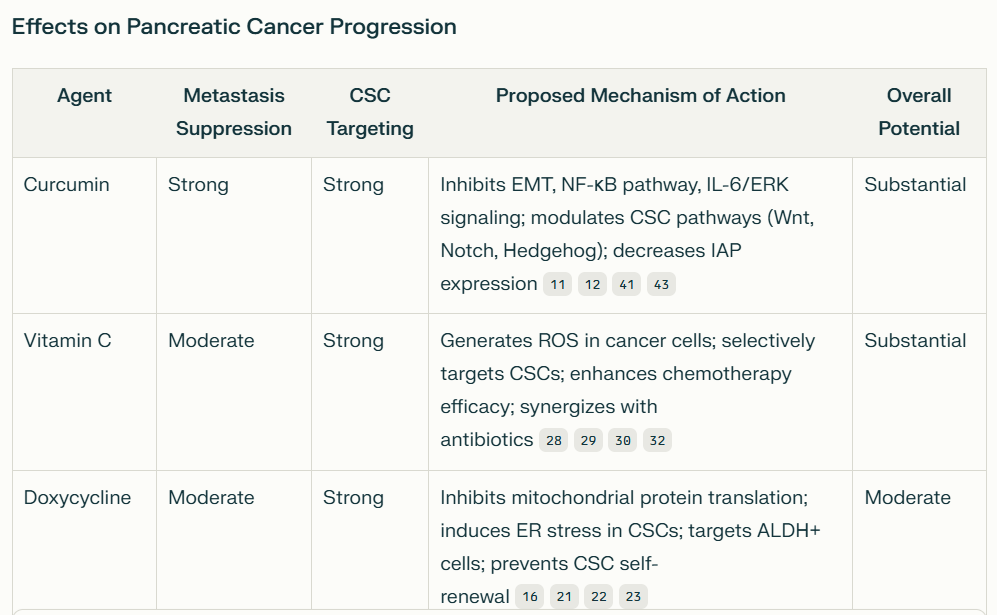
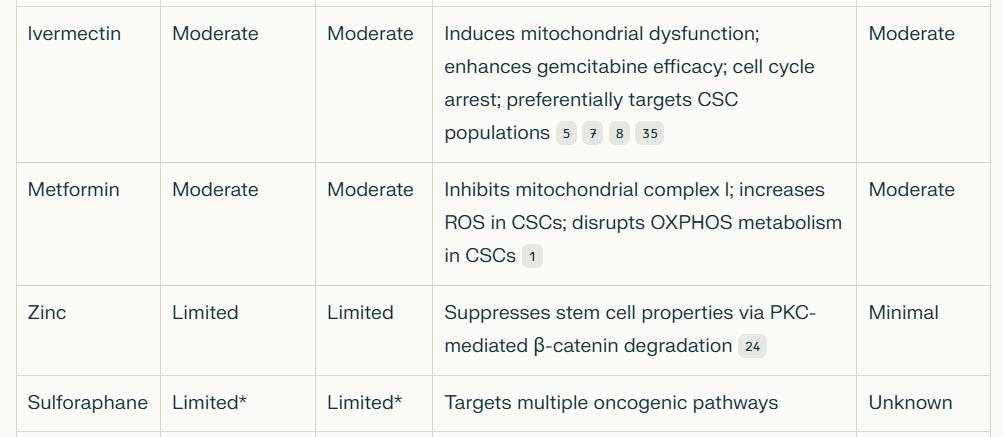
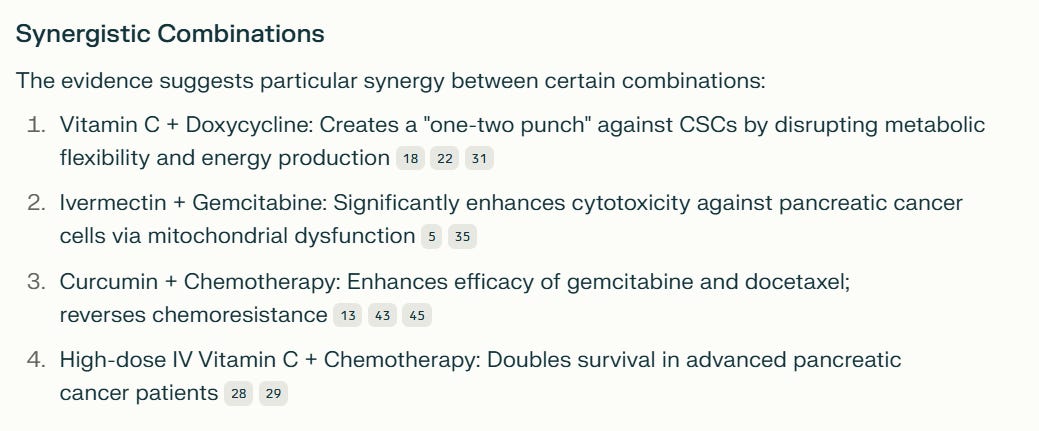

Revised Rankings of Repurposed Agents for Pancreatic Ductal Carcinoma:
- Curcumin
- Doxycycline
- Vitamin C
- Ivermectin
- Metformin
#2. Glioblastoma Multiforme: Cancer-Specific Repurposed Drug Cocktail
Glioblastoma GBM continues to be one of the most challenging malignancies to treat, with median survival typically around 12-15 months despite aggressive standard care.The concept of drug repurposing offers a promising approach to enhance conventional treatments by targeting resistant cell populations, particularly cancer stem cells CSCs that contribute significantly to treatment failure.
Many of these agents work through distinct yet complementary mechanisms that could enhance treatment outcomes.
GBM Cancer Stem Cell Targeting Mechanisms
Cancer stem cells CSCs represent a critical therapeutic target in glioblastoma as they drive tumor recurrence and resistance to conventional therapies.
Multiple repurposed agents demonstrate significant activity against these cells through diverse mechanisms.
Metformin, for example, has been extensively studied for its effects on glioblastoma stem cells.
Research indicates that metformin treatment reduces the proliferation rate of tumor-initiating cell-enriched cultures isolated from human glioblastomas and impairs tumor-initiating cell spherogenesis, demonstrating a direct effect on self-renewal mechanisms.
Similarly, resveratrol potently inhibits GBM stem-like cell growth through multiple pathways, including AKT deactivation and p53 induction.
Sulforaphane, a constituent derived from cruciferous vegetables, has shown remarkable efficacy in targeting glioblastoma stem cells. Studies reveal that sulforaphane "was effective in eliminating GSCs, which play a major role in drug resistance and disease recurrence”. This ability to specifically target the stem cell population represents a crucial mechanism for preventing tumor recurrence.
Anti-Invasion and Anti-Metastatic Properties
Beyond targeting cancer stem cells, many of these agents demonstrate significant anti-invasive properties.
Doxycycline, for instance, has been shown to decrease migration and invasion capabilities of cancer cells while inhibiting epithelial-to-mesenchymal transition (EMT), a key process in tumor invasion.
Although the primary studies focused on breast cancer cells, the mechanisms involving downregulation of stem cell factors (Oct4, Sox2, Nanog, and CD44) are relevant across multiple cancer types, including glioblastoma.
Resveratrol specifically inhibits the invasion of glioblastoma-initiating cells via down-regulation of the PI3K/Akt/NF-κB signaling pathway.
Another study clearly demonstrated that "resveratrol suppresses EMT and EMT-generated stem cell-like properties in GBM by regulating Smad-dependent signaling".
This multi-faceted action on both stemness and invasiveness represents a powerful approach to controlling glioblastoma progression.
Synergy with Standard Treatments
Several repurposed agents demonstrate synergistic effects with standard GBM treatments.
Zinc has been shown to enhance the efficacy of temozolomide (TMZ), the standard chemotherapeutic agent for GBM.
Research indicates that "zinc may serve as a potentiator of TMZ therapy in GBM patients", suggesting its potential role as an adjuvant therapy.
Mebendazole, an anthelmintic drug, has progressed to clinical trials for GBM treatment. Studies have shown that "mebendazole not only exhibits direct cytotoxic activity but also synergizes with ionizing radiations and different chemotherapeutic agents".
AI’s Recent Analysis of GBM:
Revised Ranking of GBM Repurposed Drugs for Pancreatic Cancer:
- Metformin
- Mebendazole
- Doxycycline
- Ivermectin *
- Curcumin
- Resveratrol
- Sulforaphane
- Vitamin C
*See discussion below
#3. Colon Cancer: A Cancer-Specific Cocktail
The proposed below combination targets multiple cancer pathways simultaneously:
Inhibition of Metastatic Processes: Curcumin and resveratrol directly reduce the invasion and migration capacity of gastric cancer cells, while curcumin specifically reduces circulating tumor cells that are essential for metastasis formation.
Cancer Stem Cell Targeting: Doxycycline, mebendazole, and metformin effectively target cancer stem cells through different mechanisms, addressing the root cause of metastasis and therapeutic resistance.
Angiogenesis Suppression: EGCG markedly reduces tumor microvessel density and inhibits VEGF-induced endothelial cell functions necessary for tumor growth and metastasis.
Cell Signaling Disruption: Multiple agents (curcumin, ivermectin, metformin) disrupt key signaling pathways (PI3K/Akt/mTOR, YAP1, NF-κB) that drive gastric cancer progression.
Metabolic Reprogramming: Metformin and doxycycline alter cancer cell metabolism, making them more vulnerable to conventional therapies and reducing their metastatic potential.
Revised Ranking of Repurposed Colon Cancer Drugs - Based on Metastatic & CSC Blocking:
- Curcumin
- Metformin
- Ivermectin
- Doxycycline
- Resveratrol
- Mebendazole
- EGCG
Summary:
Blocking CSCs is the fundamental principle behind our repurposed drug protocol.We have already covered the pathways that our repurposed drugs block with Ivermectin at the top.
But Ivermectin is NOT designed to be a one-man band. The idea is to block as many cancer growth pathways as possible, and to attack the tumor from as many angles and variations as possible without creating toxicity. Think about the AIDS cocktails. While one drug, AZT, was not enough to stop this disease, a cocktail or drug combination worked extremely well in suppressing the disease. The same is true of cancer.
This is something the standard of care cannot do. Because multiple chemotherapy drugs are simply too toxic. And this is the reason CSCs are missed. And this is the primary cause for recurrence, metastasis, and treatment failure.
However, supplements are generally safe with the exceptions mentioned in our protocol.
Ivermectin is one of the safest drugs on the planet, even safer than many over the counter medications. Thus, a 9 or 10 repurposed drug/supplement combination works well. The idea is to have these repurposed agents work in concert with the standard cancer care usually involving chemotherapy, radiation and surgery.
Ivermectin and mebendazole, both approved for human use, are now available in the U.S.
Researched and approved by Dr. Peter McCullough.
- Prescribed by licensed medical professionals
- Compounded and dispensed by a licensed US-based pharmacy
- Approved for human use
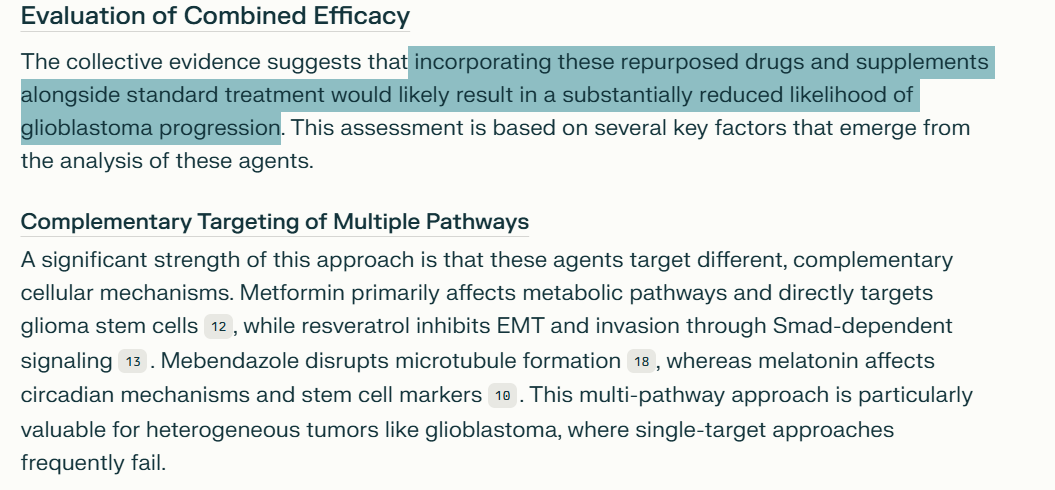
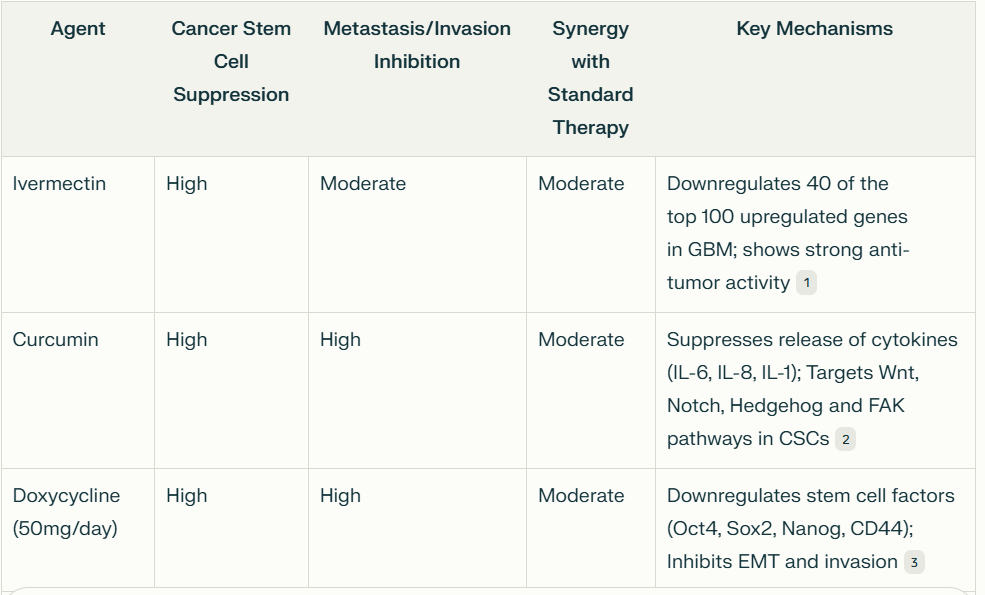
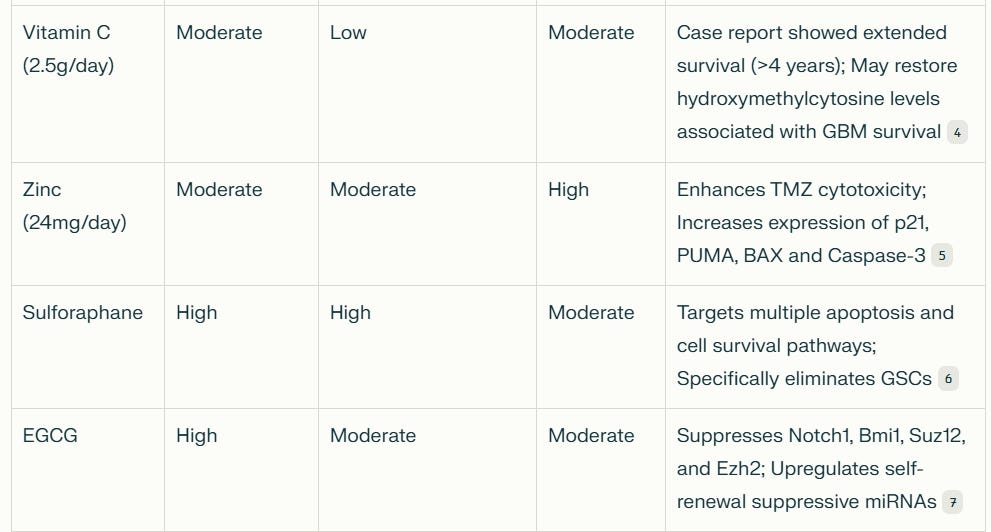
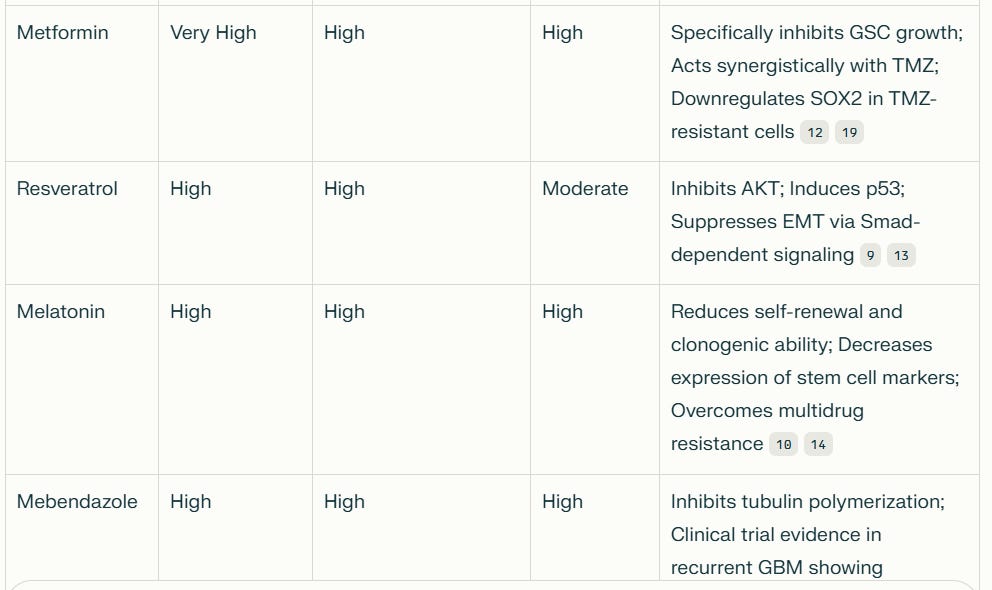
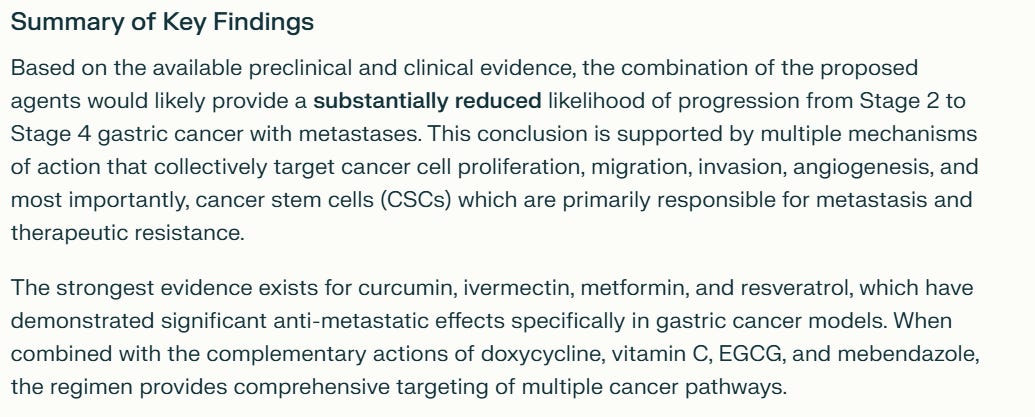
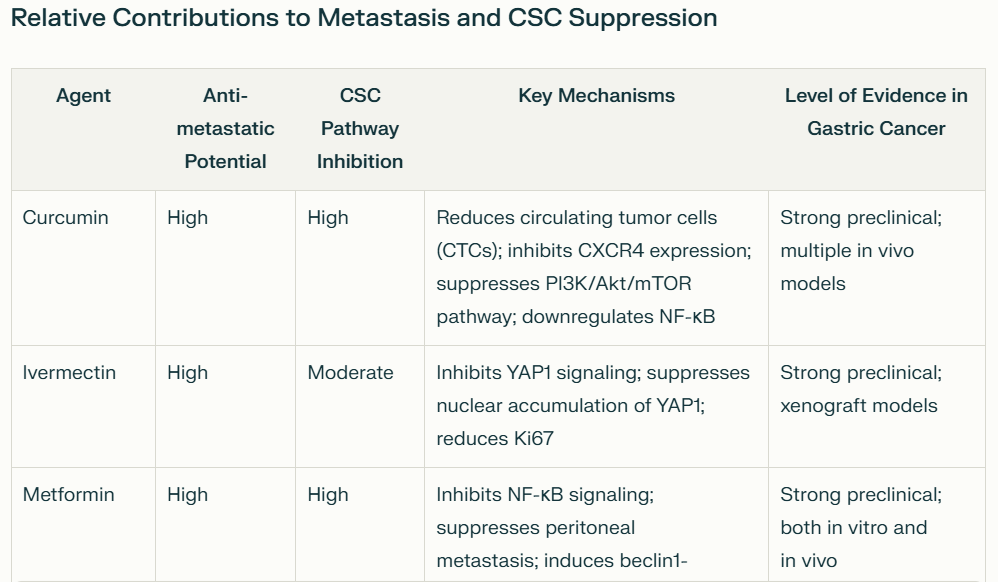
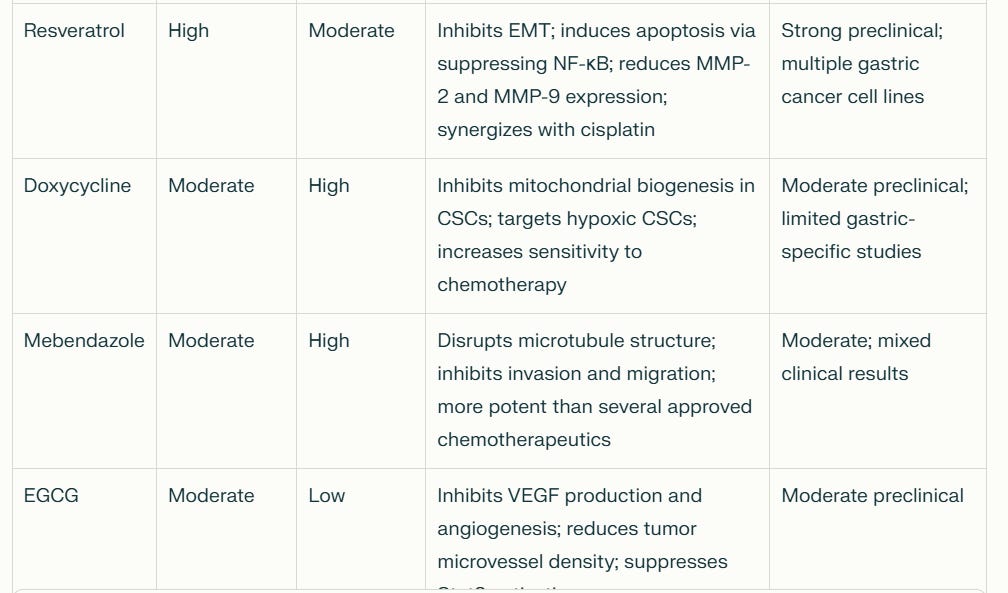
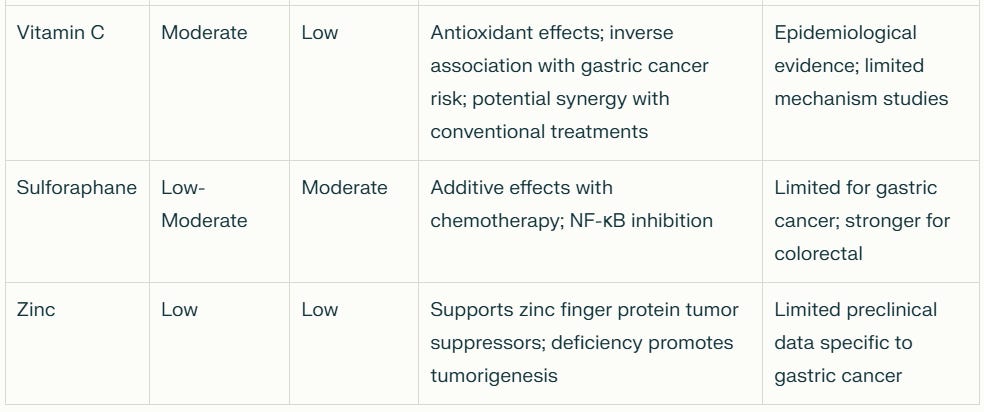

.png)

.png)




.png)

Comments
Post a Comment